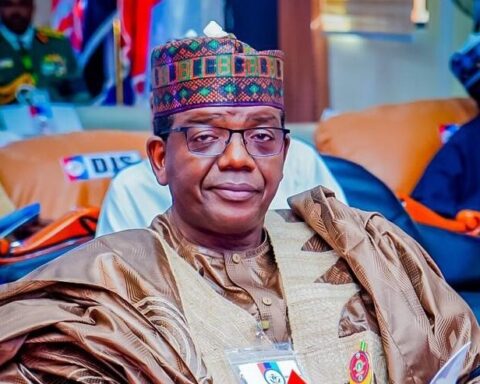By Dino Melaye
Nigeria has entered the red zone, not by accident, but by design. The numbers now speak louder than the excuses. According to the Debt Management Office (DMO), our total public debt has climbed to an astronomical ₦152.4 trillion as of June 30, 2025. That is an increase of ₦3.01 trillion in just three months, a 2.01% jump, and a dangerous continuation of an already unsustainable pattern.
When President Bola Ahmed Tinubu assumed office over two years ago, the national debt stood at ₦87.38 trillion. As of June, 2025, halfway into his tenure, it has ballooned by over ₦65 trillion. This is not fiscal management, it is fiscal vandalism masquerading as reform.
Behind every trillion borrowed is a shrinking classroom, a dying hospital, a crumbling road, and a citizen forced to bear the cost of bad governance. The administration continues to borrow to fund “fiscal gaps” while the gaps in leadership, integrity, and accountability remain unaddressed.
For a nation already crushed under inflation exceeding 20% and food inflation near 21%, this debt binge is not just reckless, it is economic cruelty. Debt servicing alone now consumes over 90% of government revenue, meaning Nigeria effectively borrows to pay interest, not to build progress.
What is worse, there is no visible improvement in infrastructure, no boost in power generation, no revival of the manufacturing sector. The government borrows, Nigerians tighten their belts, and the circle of suffering continues.
The World Bank, the IMF, the African Development Bank, and China’s Exim Bank have all become recurring names in Nigeria’s debt narrative. We are fast losing not only our creditworthiness but also our sovereignty. Every signature on a new loan agreement is a silent surrender, a mortgage of our children’s future for the comfort of today’s politicians.
This government claims to champion “renewed hope,” yet its fiscal conduct breeds only renewed hardship. Borrowing is not the problem; unproductive borrowing is. Loans should build assets, not fund consumption. But in Tinubu’s Nigeria, borrowing has become the default mode of governance, a way to paper over failure rather than confront it.
The APC administration is borrowing like a gambler chasing his losses, hoping that one more round will fix the damage of the last. But nations are not casinos, and governance is not a bet.
When a government borrows ₦3 trillion in three months, without visible economic returns, it is not stimulating growth; it is writing a promissory note of poverty for its citizens. The ordinary Nigerian pays for these loans through higher fuel costs, rising food prices, collapsing public services.
In truth, Nigeria’s debt problem is not financial, it is moral. A government that borrows without discipline, transparency, or measurable results has lost its moral mandate to govern.
If this trend continues, the next generation of Nigerians will inherit not a nation, but a balance sheet, a country whose only export is debt and whose only import is despair.



























